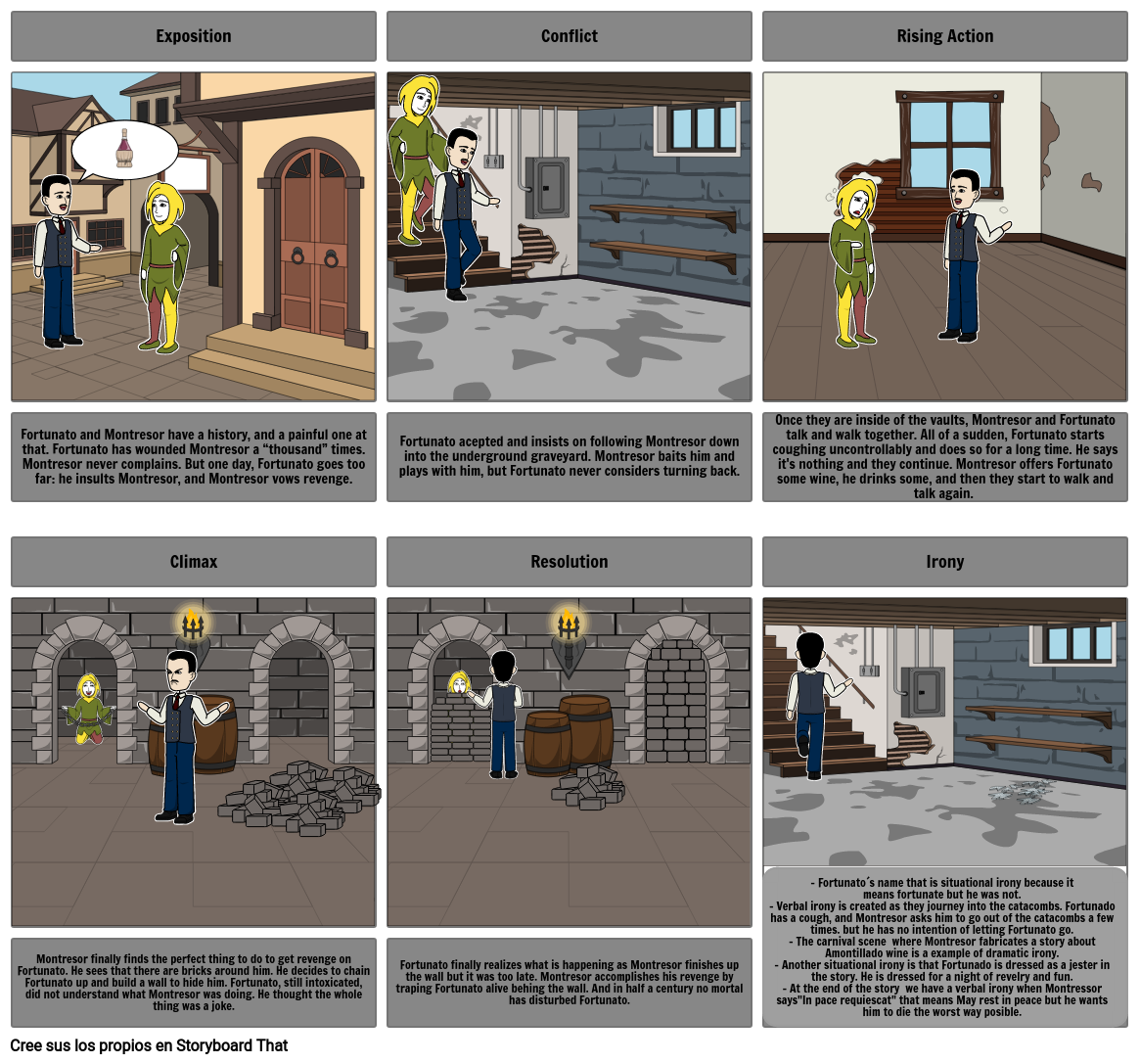The Cask Of Amontillado

Texto do Storyboard
- Exposition
- Conflict
- Rising Action
- Fortunato and Montresor have a history, and a painful one at that. Fortunato has wounded Montresor a “thousand” times. Montresor never complains. But one day, Fortunato goes too far: he insults Montresor, and Montresor vows revenge.
- Climax
- Fortunato acepted and insists on following Montresor down into the underground graveyard. Montresor baits him and plays with him, but Fortunato never considers turning back.
- Resolution
- Once they are inside of the vaults, Montresor and Fortunato talk and walk together. All of a sudden, Fortunato starts coughing uncontrollably and does so for a long time. He says it's nothing and they continue. Montresor offers Fortunato some wine, he drinks some, and then they start to walk and talk again.
- Irony
- Montresor finally finds the perfect thing to do to get revenge on Fortunato. He sees that there are bricks around him. He decides to chain Fortunato up and build a wall to hide him. Fortunato, still intoxicated, did not understand what Montresor was doing. He thought the whole thing was a joke.
- Fortunato finally realizes what is happening as Montresor finishes up the wall but it was too late. Montresor accomplishes his revenge by traping Fortunato alive behing the wall. And in half a century no mortal has disturbed Fortunato.
- - Fortunato´s name that is situational irony because it means fortunate but he was not.- Verbal irony is created as they journey into the catacombs. Fortunado has a cough, and Montresor asks him to go out of the catacombs a few times. but he has no intention of letting Fortunato go.- The carnival scene where Montresor fabricates a story about Amontillado wine is a example of dramatic irony.- Another situational irony is that Fortunado is dressed as a jester in the story. He is dressed for a night of revelry and fun.- At the end of the story we have a verbal irony when Montressor says"In pace requiescat" that means May rest in peace but he wants him to die the worst way posible.
- Montresor accomplishes his deed , but feels a small bit of remorse however, because he left poor, old Fortunato behind a wall in the vaults, all by himself to die. This however, soon disappears because he remembers how Fortunato has wronged him in the past. He heads back as if nothing had ever happened. I thought this was very harsh of Montresor.
Mais de 30 milhões de storyboards criados

